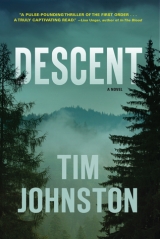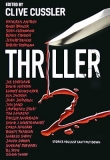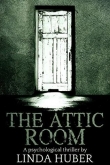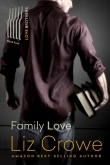
Текст книги "Descent"
Автор книги: Tim Johnston
Жанр:
Триллеры
сообщить о нарушении
Текущая страница: 7 (всего у книги 25 страниц)
17
In the bleary daybreak the boy passed a gas station just beyond the off ramp and drove into the little town the deputy had told him to stay out of. He took Main Street at the posted speed, parked among the spaces, and fed two of his dimes, and a third, into the meter.
The cafe door opened with a disturbance of small bells and he stood a moment in the warm, ancient reek: ages of coffee, ages of bacon. The quiet tink tink of knives on chinaware. A girl said, “Anywhere’s fine,” and he went to the row of stools at the counter. She came around and poured him a coffee and handed him a menu. She had the black hair and round face of a native people, although native to what he didn’t know. He ordered an English muffin.
“That’s all you want?”
“With butter and jam, please.”
She looked at him more closely. He seemed all bone and muscle under his denim jacket, and with that limp she’d first thought rodeo, but the boots were wrong and he wore no hat. He looked as though he’d slept on a rock. She imagined touching his yellow hair, dirty as it looked.
She played the thickness of her ponytail through her fist and held his eyes. “Douglas back there pours a humongous flapjack, and it only costs a dollar more than an English muffin.”
The boy glanced at some men behind him, their jaws working at their meals.
“No, thanks,” he said, and with a sigh, with an air of having done all she could do, the waitress left him. A minute later a toaster popped and she placed the muffin before him and stepped away to the cash register.
“How was breakfast, Gabe?”
“I reckon I’ll live.” The man winked a leathery lid at the boy and slipped a twenty from his wallet. The drawer rang open with a rich slosh of coins.
MORE DINERS CAME IN and the waitress carried loaded plates along her forearms. On one trip a plate appeared before the boy, the great flapjack steaming. When she returned to the counter it hadn’t moved. She inched a small china bowl toward him.
“Real maple syrup,” she said.
The boy popped the last of the muffin into his mouth. “Thank you. But I won’t eat it.”
She made a birdlike motion with her head. “Why not?” Behind her in the pass-through a man appeared. Large man stooping to look. Toothpick in his lips. One dark eye looking at the boy and the other wandering off into the world.
“I ate that muffin and that’ll do me,” the boy said.
She looked at the man in the pass-through until, muttering to himself, he went away, and then she turned back to the boy and collected the plate and turned again to upend the flapjack into a bin, and with each turn of her head her ponytail swung like a girl on the move, like a girl in a race, that thick and fitful, that alive.
He left the diner and walked along the sidewalk until he came to a Laundromat. He cupped his hands to the glass and then stepped inside. He thought he was alone but he wasn’t—a dwarfish round woman turned and blinked small black eyes at him and then turned back to monitor the portal of a dryer, her head cocked as if listening for some false note in the thumping heartbeat of it. The air was humid and sharp with the ammonia stink of piss. He went to the back by the soap-dispensing machine and stacked his quarters on top of the pay phone and pulled the slip of paper from his wallet and stood looking at it. He’d stopped calling her cell phone months ago because of the way she answered, and because of the way she sounded when it was not the call she wanted.
He got a cigarette to his lips and dropped two quarters in the slot and dialed the number and a voice told him to deposit more money and he did so and then lit his cigarette and waited.
“You can’t smoke in here.”
It was the woman, the dwarf monitress, torn from her vigil.
He nodded and showed her the receiver at his ear.
“This here’s a nonsmoking facility,” she said. “Says so right there.”
The ringing in his ear ended and he turned from the little woman as a voice said thinly, electronically, over the miles, “Hello? Hello . . . ? ”
“Hello, Aunt Grace?” he said. “It’s Sean.”
“Sean?” she said. “I can barely hear you. Where are you? Are you still in California?”
“I’m in New Mexico now.”
“New Mexico! What’s—Jordan, please stop poking him with that, now he asked you to stop, so stop.” There was a pause, a clatter of silverware, a young girl’s despairing voice. Covering the mouthpiece with her hand or her breast, his aunt said, “Right, young lady, just keep that up till I get angry, okay?”
The boy drew on his cigarette and sudden pain lanced into his knee, deep between the bones. White hot and twisting. He shifted his weight to that leg to force the blade back out.
His aunt said into the phone, “Ugh. I’m sorry. Are you there, hello—?”
“I’m here.”
“New Mexico!” she said again. “What’s in New Mexico?”
“I’ve got some work,” he said.
“You should come home, Sean. You can do that kind of work here,
can’t you?”
He knew that if there were news from Colorado his aunt would have
said so.
“Is Mom around?” he said, and for a long moment it seemed the connection had failed. At last his aunt said: “Sean, haven’t you talked to your dad?”
He said nothing. Then he said, “Why?” and his aunt said, “Seanie, your mom’s back in the hospital.”
He saw a dim phantom of himself in the face of the soap-dispensing machine.
“When?”
“Two weeks ago. She took too many pills.”
“She tried to kill herself.”
“No, she didn’t, Seanie, it was an accident. She was just taking too many of those damn pills.”
“Do the doctors think it was an accident?”
“The doctors are . . . cautious. They want to watch her for a while, that’s all.”
Behind him a harsh alarm sounded and the little woman opened the dryer and began hauling laundry hand over hand into a wire basket on wheels. Next to the soap-dispensing machine was a corkboard thick with fliers and ads: trucks and farm equipment for sale, offers of trash hauling and babysitting. Reflexively he looked for his sister’s face among them.
“Sean—?” said his aunt, and he drew soundlessly on his cigarette. Tapped ash to the dirty floor.
“Is she okay?”
“Yes. I mean, what’s okay?”
They were silent.
“She’s safe,” said his aunt finally. “She’s resting.”
They hung up and he spread the remaining quarters in his palm, tallied them, and dropped two more into the phone. He punched in a number from the corkboard and watched the little round woman backing herself through the glass door, her body rocking with the weight of two swollen garbage bags at the ends of her arms. “You ain’t got the right to smoke in here,” she said, pinning him with her black eyes. “You ain’t got the right to give other people your cancer.”
18
Grant left the sheriff and drove back over the divide and down again to meet the climbing dusk. He exited the freeway while still high above the city and took the county road back into the foothills, to the old mining town that lived on though the copper was long gone.
Inside the Whistlestop on his way to the back a man reached out to grab him. “Where’s the fire, mister?” It was Dale Struthers, the old veterinarian who owned the ranch down the road from Emmet’s. He and the wife, Evelyn, smiling up warmly. They told Grant to join them and he glanced at his watch and said he couldn’t, he only had time for one cold one and then he had to go see what kind of trouble Emmet had got up to.
“We were going to stop by on the way here, see if we could feed that old bird,” Struthers said. “But then we saw Billy’s car there and, well . . .”
“We didn’t want to intrude,” Evelyn said.
“He been back long?” said Struthers.
“A few days,” Grant said, and the old man said, “That right?” and put his silverware in order as if for surgery. His wife patted Grant’s arm to free him.
He continued back to the bar and sat down, nodding to Jack Portman and to the man Jack was serving whom he did not know. He got out his cigarettes and then remembered and put them away again. Jack drew him a pint of beer and poured a shooter. Grant tossed back the shooter, chased it, nodded for another. He sat watching the bar and the restaurant beyond in the backbar mirror. He used the mirror to study the man a few stools down. The man’s face was ordinary and revealed nothing of his character.
Maria Valente came into view in the glass, stopping before a booth of high school kids to take their order. For a moment, before she returned to the kitchen, Maria seemed to look in Grant’s direction, but her face was obscured by a large silver cataract in the old glass.
He thought about ordering another shot and another beer. He rubbed his thumb over the blunt ends of his two fingers and looked in the glass again for the man with the ordinary face. The man was gone. Grant ordered another shot and another beer.
“IS THIS SEAT TAKEN?”
Maria was there, at his left, her dark eyes finding his in the mirror. She got onto the stool and set the plate of food between them. “I got the big steak and extra fries,” she said. “Here’s some silverware.”
“No, that’s your dinner.”
“Are you kidding? Look at the size of this thing. It should’ve come with a deed.” In her voice, the way she formed her words, were long-ago scenes of a little girl in Italy. Grant knew he tended to watch her mouth.
“Are you off?” he said, and she shook her head.
“Debbie-Lynn called in sick. Otherwise known as a hot date. How about you?”
“How about me?”
“Big plans tonight?”
“Sure.” Grant took up a French fry. “Me and Emmet are throwing a party out to the ranch. Gonna be a hootenanny. You should come by.”
“Really. A welcome-home party for Billy?”
He looked at her and she said, “He was in earlier. With that Gatskill girl who likes to French-kiss in public.” She watched him in the mirror, then picked up her knife and began sawing into the meat. After a few minutes he joined her.
They had just finished the steak when Maria’s daughter appeared at her side, planting her elbows on the bar and levering herself forward for a look at the bloody plate. “That is revolting. Did you even cook it?”
“Carmen, tesoro—you remember Mr. Courtland?”
“Yes. Good evening, Mr. Courtland.”
“Good evening, Carmen.”
The girl had her mother’s dark eyes and dark curly hair but her skin was darker than Maria’s. That was all Grant knew about the father.
“Anyway,” the girl said, snapping down a credit card. “Here’s this.”
“Did you have them check the transmission fluid?”
“I checked it myself. It’s fine.”
“Who showed you how to do that?”
“This hitchhiker dude I picked up.”
“Oh, that’s funny. Isn’t she funny, Mr. Courtland?”
There was a sound, a playful chirrup, and the girl glanced at her phone. She kissed her mother on the cheek and dismounted from the bar. “Gotta go, Jenna’s waiting.”
“You two be good,” Maria said.
“You too.”
“And not one second past midnight, I mean it.”
The girl strode back through the restaurant and the high school kids watched her go. One of the boys bugged out his eyes and Grant’s heart filled with violence. He saw himself crossing over and lifting the boy out of the booth by his throat.
“So she got the car,” he said.
Maria looked to the ceiling in wonder. “When she drove it off the lot, just her, sitting behind that wheel, I thought, This can’t be happening, look at her, look how young!”
She turned to him and touched his forearm. “Oh God, I’m sorry—”
Grant shook his head. Hush. He patted her small hand.
When she got off work at ten o’clock she found him where she’d left him, hunched over his drinks. There was a kind of scene outside in the yellow lamplight when he would not surrender his keys, but finally he dropped them into his pocket and got into her Subaru. Maria was not expecting anything. There had been plenty of time for something to happen and it hadn’t, and she was fine with that.
Grant sat with his hands capping his knees, his eyes fixed on the road unspooling in the lights. Maria punched on the radio, listened a moment to some country song, and punched it off.
“She’s a beautiful girl,” he said.
“Who is?”
“Your girl. Carmen.”
“Thank you.”
“And smart. Smart. I bet she’s ready to drive that car right off to college.”
Maria looked over at him. He pawed at the chest pocket of his jacket and then stopped and put his hand back on his knee. “You can smoke if you want to,” she said. “Seriously. I think I’ve even got one of those lighter things . . .”
“Right here,” he said, thumbing in the knob. He got a cigarette to his lips and gapped the window. The lighter popped and he guided the coil with care. He blew the smoke through the opening, and then held the ember as near to the wind as he could without destroying it. The wedding band on his finger glowed a dull green-gold in the light from the dash.
“Well,” Maria said. “What about Sean?”
“What about him?”
“Is he getting ready for college?”
“I don’t know.”
“You don’t know?”
“No, ma’am.”
“Doesn’t that—” she said. “Don’t you want to?”
He nosed the cigarette slowly to the wind, absorbed, until the embers flared and flew off like bright little hatchlings.
She said: “I’m sorry, I’m overstepping.”
“No, you’re not.”
“I’m taking advantage of the circumstances.”
“Which circumstances?”
She glanced at him, then looked back to the road. Slowing for a blind curve, her beams swept a stand of aspens—white skins flashing for a lurid instant and dodging back into darkness.
After a silence Grant said, “Ask me something I can answer,” and she nodded and said, “All right. All right, I’ve always been curious: what happened to those fingers?”
“Which fingers?”
She gave him a look, and he opened his hand before the windshield.
“Was it a work accident?” she said. “Like a saw or something?”
“No. Well, there was a saw, but it wasn’t a work accident. It was a drinking accident.”
“Oh.”
“I used to be a drinker.”
“Oh.”
“The turnoff’s coming up.”
“I know. But thanks.”
When they reached the ranch he had her circle around the big spruce and park in front of the old ranch house. He struggled with the seat belt until she leaned over to get it. The black spill of her hair, the up-close smell of it.
“Maybe I should come in and make you some coffee,” she said. “Do you have coffee in there?”
The Labrador met them on the porch and Maria put her knuckles to the dog’s nose and tousled the soft ears. Grant held open the door and flicked on the light and saw at once the drab utility, the male disregard. Whiff of laundry he’d let pile up because he didn’t like the sound of the machines, that humming and thumping, that false lulling.
“Make yourself at home,” he said.
“Where are you going?”
“Over to check with Emmet. Come on, you,” he said to the dog.
From the window over the sink she watched man and dog cross the clearing in the blue light. Grant walked upright and steady in a way that made her heart shift. She had tried to imagine it—what happened to him happening to her, her daughter—but she could not, not even for a second. Bad things happened to good people. God had his plan, always. But how did that help this man? His family? That girl? She began looking for the coffee.
Grant stopped short of Emmet’s porch and stood before the living room window. Through the glass he could hear the argument between two TV crime solvers. Electric auroras of blue and green played over the walls and over the old man’s white-socked feet on the footrest. The remote stood upright in his spotty hand but his eyes were shut and his stubbled jaw had fallen. Grant thought of his children, his own children—of carrying them to their beds when they were small. The limp human weight of them, the young scent of their skins, the murmurs as he lay them down. Angela waiting downstairs with a glass of wine, bare feet up under her on the sofa. He stood outside the old man’s window remembering that this had happened, that it was true.
19
The edge was not keen but the cottonwood logs were dry and they split well, the halves leaping away as the blade sunk into the face of the block, which was the trunk of the cottonwood itself. The boy split each log in half and then split the halves in half, family of four, over and over, pausing only to carry the pieces to the corner of the house and add them to the stack, turning each piece for fit. The house was stucco of some defeated color, with vigas stumps jutting from the face. About it lay a graveyard of trucks and farm equipment and other wreckages, all of it wallowing in tall yellow grass. In the shade of the narrow portico at the front of the house sat a muscular brindle dog, tracking the boy’s movements. It seemed to be waiting for an excuse to attack him.
Around noon, with the sun roaring down, he walked to the hand pump near the smaller house, the casita, and struggled with it until at last the water retched up and ran in a cold stream that tasted of stones and iron. He bowed his head under the stream, and then lifted his T-shirt to towel his face. When he dropped it again a girl was sitting in a chair in the shade with the dog. A thin-armed girl in a black bikini top and enormous round sunglasses, her insteps gripping the wooden railing.
The boy lit a cigarette and stood smoking it in the shade of the casita.
Later the man came out with two bottles of beer and a ham sandwich on a plastic plate. He was a large red-faced man in a black T-shirt tight across his gut, his feet stuffed into a kind of sandal. He had a bad back and moved like a man in ankle chains. His name was Tom Carl but the boy didn’t know if Carl was his last name or the second part of his first.
He took the sandwich and one of the beers and said, “I don’t think I can do much with these right now. But thank you.”
Tom Carl looked at the stack of cordwood near the house. “I can see you know how to work. You don’t have to try to impress me.”
The boy looked around for a place to set the sandwich and the beer other than the face of the trunk.
“We came out here to work too,” Tom Carl said, surveying the ruined machinery of his kingdom. “Spend more time together, fix the place up. A family project. Angela lasted five months and high-tailed it back to Phoenix, and now my daughter is counting the days. One day, that dog will go too.”
“Angela,” said the boy.
“Angela. My wife,” said Tom Carl.
“That’s my mother’s name.”
The older man looked at him, and then took a long swallow on his beer.
The boy stood holding the sandwich and the beer.
“Give ’em here,” said Tom Carl, and when his hands were full again he turned and took two steps toward the house and pulled up short. “How long you been sitting there?” he said.
The girl’s painted toenails made a ruby necklace in the sun. She did not look up from the magazine in her lap. She turned a page. “Since the dawn of time,” she said.
THE BOY WAS AT the corner of the house stacking cordwood when the girl rose from the chair and reached in a stretch for the portico ceiling, showing her dimpled stomach, ladder of ribs, and he thought of Caitlin and her friends in their track shorts and their tight tops—barefoot empresses of summer days, conspiring in voices that made no effort not to be overheard by the male in the house, the plain, meaningless lump of boy who burned at their periphery.
That boy older now than those girls were then. Older than this one before him.
“Come on,” said the girl, and she made a kind of dash past the dog. She bent and slapped her thigh. “Come on,” she urged. She waved a hollow length of bone. “You want this? You want this?” The dog rose to all fours and sluggishly followed. The girl waggled the bone before the dog and said, “Go get it!” and flung the bone into the high blazing grass. The dog took a step toward the thrown bone, swung its head to watch the boy returning to the tree trunk, and then slunk back to the shade and to its dirty square of carpet. The girl stood with her back to him, drenched in the reddening light, young and hip-cocked, preposterous, beautiful.
“CAN I BUM A smoke?” she said.
She stood to his left, hand to her forehead, shielding the big sunglasses from the sun. White well of armpit giving off faint scent.
“Sorry?”
“A cigarette?”
He saw himself reflected in the dark glasses. He looked at her bare feet, the dusty ruby toenails. He pulled the flattened pack from his pocket and held it to her. She pinched up a cigarette and tucked it under an edge of her bikini top and then offered these same fingers.
“Victoria,” she said.
He wiped his hand on his thigh and took hers, small and warm, and he said his name.
“What’s the matter with your leg, Sean?”
“It was in an accident.”
“A car accident?”
“Yes.”
“Are there scars?”
“You better step back,” he said.
She stood by as he swung the ax down on another log, retrieved one of the halves and set it up. Swung again. He thought about every movement, every pause.
“So, Sean,” she said. “Can I ask you something?”
“Yes.”
“What are you doing here?”
“Here?”
“Out here.” She glanced about the arid world.
“Making gas money.”
“To get to someplace else.”
“Yes.”
“Someplace in particular?”
“No.”
“So, pretty much you just drive around in that truck.”
“Pretty much.”
She nodded. She watched him. He passed a forearm over his brow. Far above in the sky a threesome of large birds turned a slow wheel. He stood another log on the block.
“What about company?” she said.
“What about it?”
“Don’t you get lonely?”
He brought the ax down on the log and the two halves leapt. He picked up one of the halves and stood looking at it as if the new yellow face of it would tell him something. Then he placed it on the block and split it in two.
“Well,” said the girl. “Everybody needs some company sometime.” And without waiting for his reply she turned and walked back to the house, and knowing she knew he watched, he watched just the same.
Why not her? he thought. Why not this girl instead of Caitlin? The idea of such carelessness, such arbitrary selections in the world, made him almost sick.
By sundown there were only a few logs left and he quartered these and stacked the cordwood. On the horizon a yellow moon rose from the mesas. Tom Carl returned carrying two sweating bottles of beer.
“You hungry now?”
“No, but thirsty.”
They stood in the song of insects. Tom Carl looked at the Chevy and said the boy was a long way from Wisconsin, and the boy said he didn’t live there anymore, and Tom Carl asked where did he live and the boy looked at the moon and said the last place he lived under a regular roof was up in Colorado with his father.
“How long ago was that?”
“February,” he said.
“And you’ve just been driving around since then? Job to job?”
“Yes.”
Tom Carl sipped his beer.
“Is there more of you up there in Colorado, with your father?”
The boy looked at him.
“More of your people. Your family.”
The boy shifted his weight to his bad leg and Tom Carl said, “It’s none of my business. I’m just curious if your dad’s alone up there or not.”
“There’s an old man on the ranch where he’s living.”
Tom Carl raised his drinking arm and slapped at it with his free hand, killing a mosquito.
“How come you left? If you don’t mind me asking.”
The boy was silent a long time. A hard, bitter morning, he remembered, Perseus, the slayer of Cetus, setting in the west, and the old green truck wouldn’t start, so he took the good truck, the blue Chevy. He’d been living with his father in the ranch house for five months and he hadn’t thought, until he was miles away, how it would be when his father woke to find another child gone.
“It just seemed like it was time to go,” he said at last, and took a drink.
Tom Carl put a hand to his back and grimaced. “I thought maybe you had some kind of trouble.”
“Trouble?”
“Trouble.”
The boy met the older man’s eyes. Then he looked into the dusk and said, “No, sir. No trouble. I’m just trying to make gas money.”
Tom Carl showed him the casita and the daybed there and the showerhead over the stone floor. On his way out he stopped and asked the boy if he had a cell phone.
He did but the battery was shot.
His host stood gazing about the little room. “If you need to call someone,” he said, “come on over to the house. I got a cordless you can take outside and that’s about as good as it’s gonna get, privacy-wise.”
He thanked him and Tom Carl tipped his bottle good night and closed the door.
The boy removed his boots and socks and lay back on the narrow bed, his knee pulsing with the old damage and his shoulder answering where the muscle and bone went on chopping, and he lay in this dialogue of pain thinking about his father up in Colorado, his mother in Wisconsin, in the hospital, and Caitlin wherever she was—and he didn’t think he would sleep but he did, and in his sleep he climbed a path in the woods, in the dark, making his way by the progress of the animal he followed, a dog or wolf of such whiteness it raised shadows from the things it passed, the trees and stones. He kept pace with the white dog until the path grew steep and he began to fall behind, and soon he was in total darkness. Clawed at by the limbs of trees, falling to all fours, he scrabbled on until he came to her suddenly on the path. Pale and naked and curled upon herself, and though she was very young he knew it was her. He said her name but she only lay there holding her knees, and when he looked up again he saw the white dog watching him. He moved to pick her up and the dog advanced, and he let go and backed away. The dog came on and he backed away until he could no longer see her, until she’d slipped wholly back into the dark. Then the dog walked to her and by its light he saw her again, saw that she was sitting up, and that she was grown. Covering her breasts with one arm and gesturing to him with the other, beckoning him back, Come back . . .








